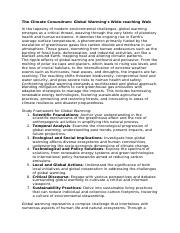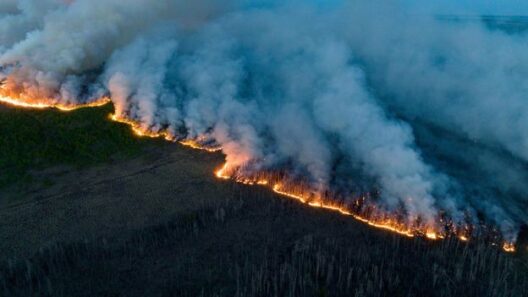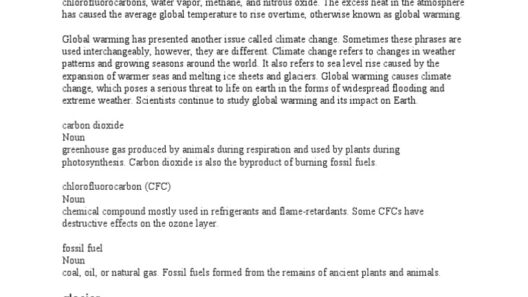New Zealand, a nation renowned for its breathtaking landscapes and biodiversity, finds itself at a critical juncture as it grapples with the intricate and multifaceted issue of global warming. The country’s unique geographical attributes present both advantages and vulnerabilities in the face of climate change. This essay delves into the pressing climate conundrum that New Zealand faces, exploring its ecological implications, the socio-economic ramifications, and the innovative strategies being employed as the nation seeks to combat this existential threat.
The phenomenal topography of New Zealand, characterized by its majestic mountains, lush forests, and crystal-clear lakes, belies a delicate environmental equilibrium. The nation is home to a plethora of endemic species, making it a key player in global biodiversity conservation. However, climate change poses a formidable challenge to this ecological tapestry. Rising temperatures threaten to disrupt the natural habitats of numerous flora and fauna, exacerbating the risks of extinction. Moreover, New Zealand’s agriculture, heavily reliant on its rich soil and temperate climate, is faced with increasingly erratic weather patterns. As droughts alternate with torrential rainfall, the predictability required for sustainable farming practices erodes.
Moreover, the fisheries sector, vital to New Zealand’s economy, is undergoing profound transformations as ocean temperatures rise and acidification progresses. The iconic green-lipped mussel, for instance, is particularly susceptible to these climatic shifts. As marine ecosystems become more stressed, the ripple effects may endanger local communities that depend on these resources for their livelihoods. Consequently, the nexus between environmental change and socio-economic stability underscores the urgency for targeted action against global warming.
In response to these challenges, the New Zealand government has pledged to undertake ambitious measures to mitigate climate change and enhance resilience. Among the most significant initiatives is the commitment to achieve net-zero greenhouse gas emissions by 2050. This visionary goal is articulated in the Climate Change Response (Zero Carbon) Amendment Act, which establishes a framework for reducing emissions, improving carbon sequestration, and fostering climate resilience across sectors.
A critical component of this legislative framework is the emphasis on renewable energy sources. New Zealand has made commendable strides toward transitioning from fossil fuels to sustainable energy alternatives. Hydropower, wind, and solar energy currently represent a substantial portion of the national energy mix. Emphasizing these renewable sources not only contributes to emissions reduction but also aligns with the ethos of the nation’s environmental stewardship.
Furthermore, the agricultural sector is being called upon to adopt regenerative practices that prioritize sustainability. Initiatives geared towards precision agriculture, agroecology, and other innovative farming techniques serve to enhance soil health and reduce emissions. By focusing on improving the land’s capacity to sequester carbon, New Zealand’s farmers can cultivate a more resilient and sustainable agricultural landscape, ensuring food security for future generations.
Public engagement and grassroots activism have also played a pivotal role in shaping climate discourse within New Zealand. The youth-led climate movement has invigorated the societal call for urgent action, mobilizing thousands to participate in climate strikes and advocacy efforts. This rising consciousness among New Zealanders fuels a collective desire to shift perspective, recognizing that climate change is not an abstract concept but a tangible reality demanding immediate and decisive action.
Furthermore, New Zealand’s indigenous populations, particularly the Māori, play an integral role in the conversation surrounding climate change. Their traditional knowledge and deep connection to the land offer invaluable insights into sustainable living. For instance, the concept of “kaitiakitanga,” which embodies the notion of guardianship over the environment, underscores the importance of harnessing indigenous wisdom in contemporary climate action strategies. Their participation can amplify the effectiveness of initiatives aimed at mitigating climate impacts, enriching the national dialogue on environmental stewardship.
On an international scale, New Zealand is positioning itself as a leader in climate diplomacy. By actively participating in global agreements such as the Paris Agreement, the nation showcases its commitment to collaborative action against climate change. Engaging with other countries enables the exchange of innovative ideas, methodologies, and technologies that can enhance adaptive capacity and resilience worldwide.
Nevertheless, the path ahead is fraught with challenges. The intricate interplay between economic development and environmental sustainability often leads to polarizing debates. Stakeholders must navigate the complexities of balancing economic growth with ecological preservation, ensuring that policies are equitable and just for all New Zealanders. The importance of engaging diverse voices in these discussions cannot be overstated, as inclusivity fosters a more holistic approach to climate action.
Ultimately, New Zealand’s climate conundrum serves as a microcosm of the global struggle against climate change. The nation’s unique vulnerabilities and rich natural heritage compel an urgent re-evaluation of priorities and practices. As New Zealand embarks on this transformative journey, its commitment to sustainability holds the promise of shifting global perspectives on environmental stewardship. By fostering a sense of collective responsibility and empowering local communities, New Zealand is setting a precedent for other nations to follow.
In conclusion, the convergence of environmental, economic, and social imperatives presents an intricate challenge for New Zealand as it confronts the realities of global warming. The country’s proactive strategies in mitigating climate impacts, combined with the resilience of its communities and the wisdom of its indigenous peoples, offer a beacon of hope. As New Zealand navigates its climate conundrum, it embarks on a quest not just for survival, but for a harmonious coexistence with the planet that sustains it.







